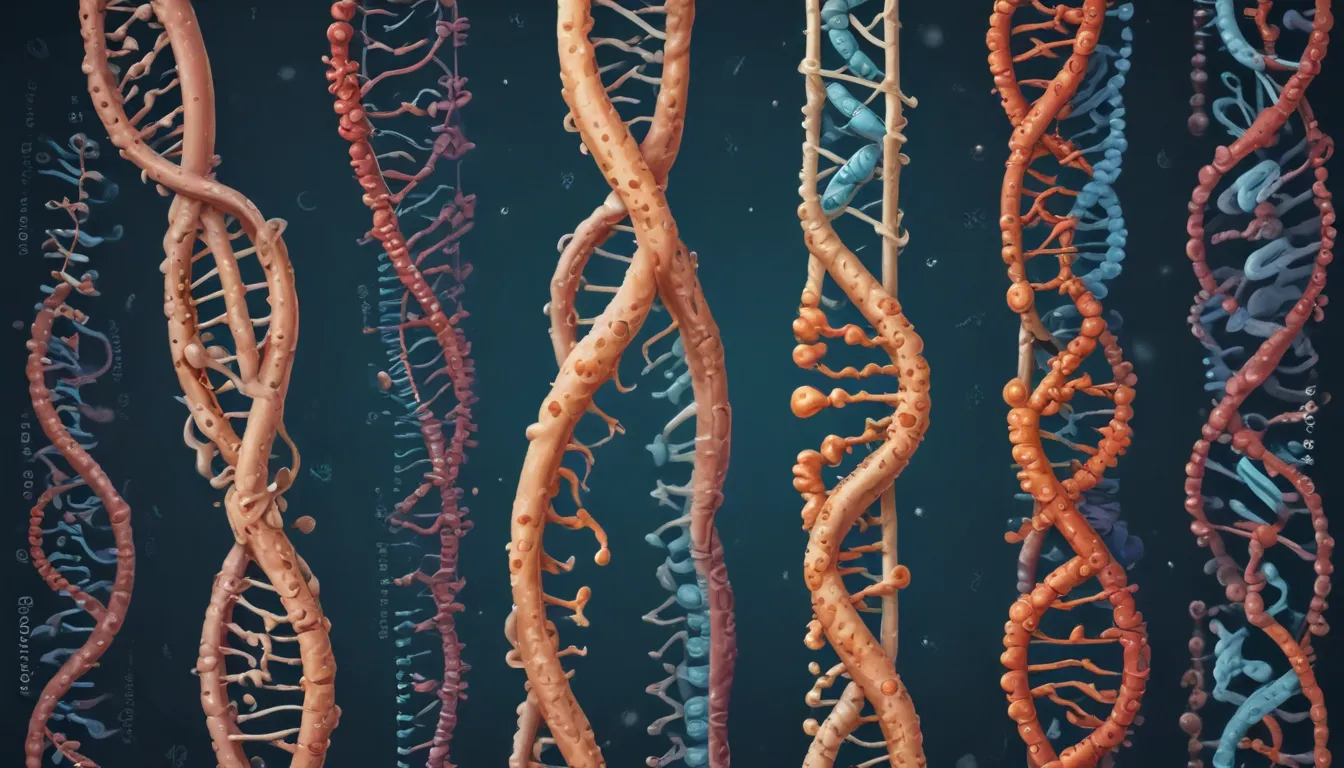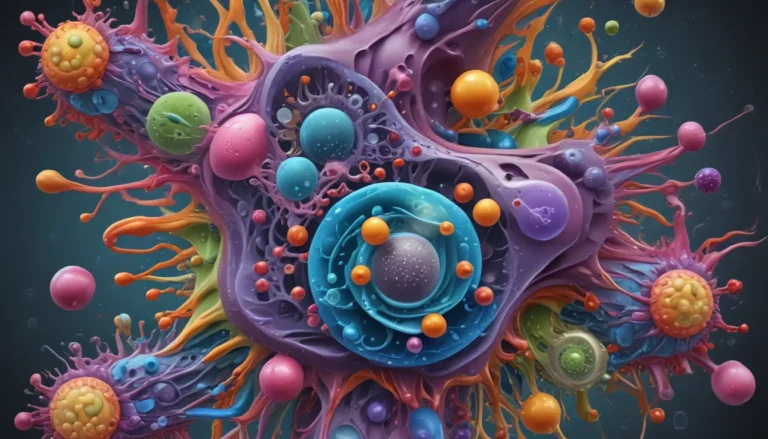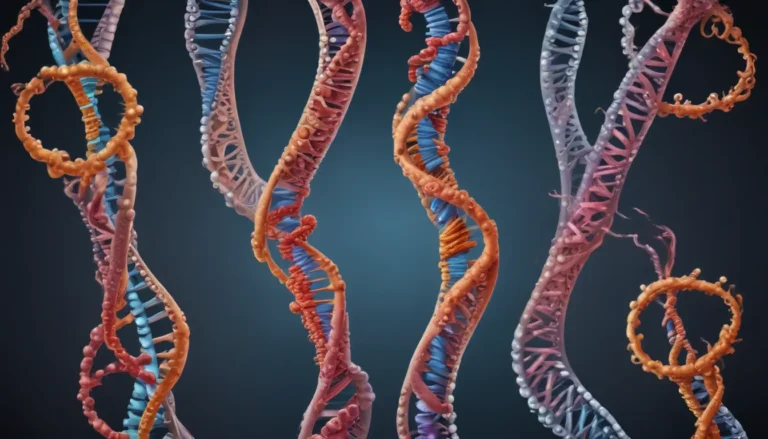A Note About Images: The images used in our articles are for illustration purposes only and may not exactly match the content. They are meant to engage readers, but the text should be relied upon for accurate information.
Welcome to the fascinating world of chromosome mapping, where we unravel the intricate details of our genetic makeup and explore the secrets hidden within our DNA. Chromosomes are the building blocks that hold the key to who we are and what makes us unique. By mapping these chromosomes, scientists have unlocked a treasure trove of information that has revolutionized our understanding of genetics and biology.
Delving into the Depths of Chromosome Mapping
Chromosome mapping is a vital field of study that offers valuable insights into various biological processes. In this comprehensive guide, we will delve into 20 enigmatic facts about chromosome mapping that highlight its significance in the world of genetics. From unraveling DNA mysteries to predicting drug responses, chromosome mapping plays a pivotal role in shaping our understanding of genetics and improving countless aspects of our lives.
So, fasten your seatbelts and get ready to embark on a journey of discovery as we explore the fascinating world of chromosome mapping!
Unraveling the Genetic Mysteries
- Chromosome mapping helps identify genetic disorders: By pinpointing the exact locations of genes associated with genetic disorders, scientists can enable early detection and treatment.
- Tracking our ancestry: Specific markers on chromosomes allow us to trace our genetic lineage back to our ancestors and discover our genetic heritage.
- Aiding forensic investigations: Forensic scientists utilize chromosome mapping techniques to analyze DNA evidence and match it to potential suspects, aiding in solving crimes.
- Revolutionizing personalized medicine: Chromosome mapping paves the way for personalized medicine by determining individuals’ genetic predispositions to diseases, allowing tailored treatments.
Illuminating Insights into Biology
- Essential in plant breeding: By mapping plant chromosomes, scientists can identify desirable genetic traits and breed crops with improved yield, disease resistance, and nutritional content.
- Revolutionizing cancer research: Chromosome mapping plays a crucial role in understanding genetic mutations that drive cancer development and developing targeted therapies.
- Unlocking the secrets of evolution: By comparing chromosome maps of different species, scientists gain insights into evolutionary relationships and how organisms have diverged over time.
- Study of inherited diseases: Chromosome mapping helps illuminate the genetic basis of various inherited diseases, enabling better diagnosis and management.
Unveiling the Potential of Chromosome Mapping
- Personalized nutrition implications: By analyzing an individual’s chromosome map, scientists can provide personalized dietary recommendations based on genetic factors affecting nutrient metabolism.
- Revealing the sex of an unborn baby: Medical professionals can determine the sex of a fetus during pregnancy by examining specific chromosomes.
- Insights into human migration patterns: Genetic markers on chromosomes help scientists reconstruct ancient migration routes and understand the movements of different populations.
The Impact Beyond Genetics
- Identification of genetic mutations: Scientists can identify new mutations contributing to genetic disorders through chromosome mapping, opening doors for therapeutic interventions.
- Genetic diversity insights: Comparing chromosome maps from different populations reveals the extent of genetic variation and the factors that shaped it.
- Animal conservation efforts: Chromosome mapping aids in studying the genetic diversity of endangered species, contributing to conservation strategies and breeding programs.
Advancements in Chromosome Mapping
- Predicting drug response: By analyzing an individual’s genetic makeup and mapping their chromosomes, researchers can predict how a person is likely to respond to certain medications.
- Understanding epigenetics: Chromosome mapping sheds light on the complex interactions between genes and the environment, contributing to our understanding of epigenetic modifications.
- Applications in agriculture: Mapping the chromosomes of livestock helps improve breeding programs and enhance desirable traits in animals.
Conclusion: Embracing the Genomic Revolution
In conclusion, chromosome mapping has revolutionized genetics and biology by unraveling the intricacies of our DNA. Through this process, scientists have made significant strides in understanding genetic disorders, human evolution, personalized medicine, and much more. The 20 enigmatic facts about chromosome mapping showcased in this guide demonstrate the vast potential and impact of this field in shaping our knowledge of genetics and improving various aspects of our lives.
FAQs: Exploring Chromosome Mapping
-
What is chromosome mapping?
Chromosome mapping involves identifying and locating genes, DNA markers, and other genetic features on a chromosome to create a detailed map of the genetic material present. -
Why is chromosome mapping important?
Chromosome mapping is crucial in studying genetic diseases, inheritance patterns, and evolutionary relationships between species, providing valuable insights into genetics and biology. -
How is chromosome mapping done?
Various techniques, including cytogenetic mapping, linkage mapping, and physical mapping, are used to analyze genetic markers and DNA sequences to determine gene locations on a chromosome. -
What are the applications of chromosome mapping?
Chromosome mapping has practical applications in medicine, agriculture, and forensic science, aiding in diagnosing genetic disorders, breeding crops with desired traits, and establishing relationships between individuals using DNA analysis. -
What are the challenges in chromosome mapping?
Chromosome mapping can be challenging due to the complexity of the human genome, the presence of repetitive sequences, technological limitations, and the need for large-scale data analysis to create accurate and comprehensive chromosome maps.
Embrace the wonder of chromosome mapping and embark on a journey through the genetic landscape that holds the key to countless discoveries and advancements in science and medicine. As we unravel the mysteries of our DNA, we pave the way for a future where genetics shapes individualized treatments, conservation efforts, and a deeper understanding of the world around us. Join us in the exploration of chromosome mapping and witness the transformative power of genetics in our lives.






